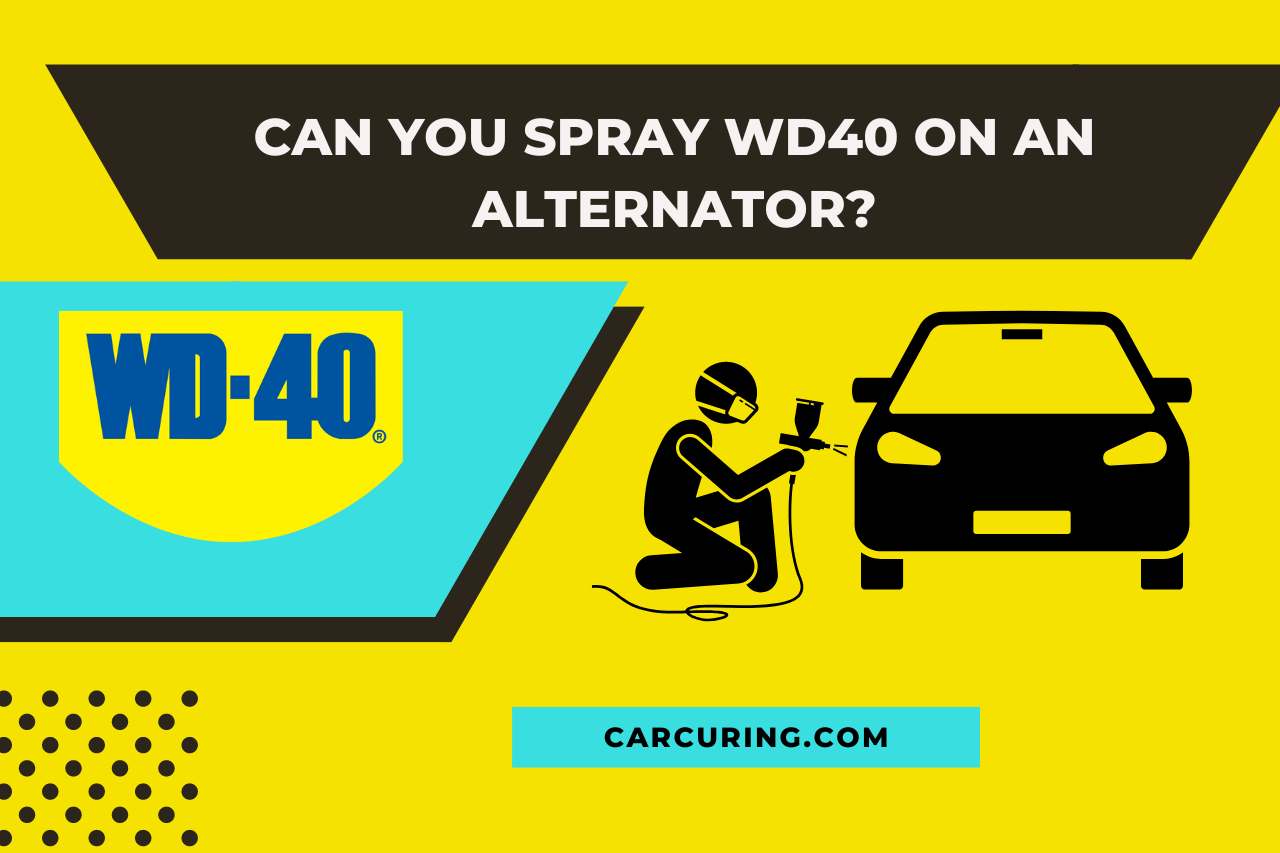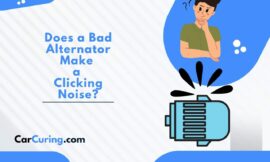Cleaning the alternator in the vehicle is an essential maintenance step to guarantee its longevity and best operation. You can effectively clean the alternator without removing it from the vehicle with the correct equipment and procedures. In this article, we will explore the cleaning process of vehicle alternators. We will provide helpful tips and techniques to thoroughly and effectively clean.
Is It Possible to Clean an Alternator Without Removing It?
The answer is yes. Possible to clean an alternator without removing it from the vehicle. Special chemicals like degreasers, like White Spirit, can clean the alternator windings without causing any damage.
White Spirit is a safe cleaner that does not dissolve the enamel of the windings and evaporates without leaving behind any stains. Ensure that all wires are correctly disconnected before cleaning.
An air compressor and a portable heating and drying system can help ensure the alternator is thoroughly dried after washing.
Cleaning an alternator without removal is a straightforward process that can help maintain its performance and functionality.
What Are the Signs that an Alternator Needs Cleaning?
Signs that are alternator needs cleaning may not directly relate to the cleaning process but rather indicate a more significant issue with the alternator. Here are some common signs that your alternator may need attention.
- Difficulty Starting – If your car has trouble starting and takes a while to turn over, it could indicate a worn-out alternator with brushes or a malfunctioning voltage regulator.
- Dimmed Accessory Lights – If your dash lights, dome light, headlights, or radio appear dimmer than usual when starting the vehicle. It may suggest the alternator is struggling to handle the electrical load.
- Dead Batteries – If your battery keeps dying even after testing it and finding it in good condition, it could be due to an alternator failure. The alternator may not be properly recharging the battery.
- Burnt-rubber Smell – A burnt-rubber smell could arise if the alternator belt is not rotating freely on the pulleys, causing friction and overheating.
- Grinding or Whining Noise – unusual noises like grinding or whining from the alternator can indicate problems with the bearings or the voltage regulator.
These signs can indicate more significant issues with the alternator beyond just cleaning. Have your vehicle inspected by a qualified mechanic to determine the exact cause and address any necessary repairs or maintenance.
How to Clean the Alternator without Removing It?
Follow these steps to clean an alternator without removing it.
- Disconnect the Battery – Disconnect the battery to prevent electrical shocks or damage to the alternator before cleaning.
- Remove Dirt and Debris – Clean the exterior of the alternator of any dirt or debris with a soft brush. Avoid damaging sensitive electrical components.
- Clean with a Solution – Choose a suitable cleaning solution, like a degreaser or rubbing alcohol. Spray it onto a soft cloth and gently wipe the alternator, ensuring not let the answer come into contact with internal components. Also, spray the solution directly onto the alternator and wipe it off with a clean cloth.
- Clean Hard-to-Reach Areas – Use a toothbrush to clean areas that are difficult to reach, like electrical connectors and fins. Apply gentle pressure to avoid damaging delicate components.
- Dry the Alternator – Use a clean and dry cloth to thoroughly dry the alternator, paying attention to moisture around electrical connectors.
- Reconnect the Battery – Reconnect the battery and start the engine to verify proper functionality once the alternator is dry. Check for warning lights or unusual noises that may indicate an issue with the alternator.
How Do I Keep My Alternator Healthy?
Regular maintenance is critical to keeping your alternator healthy. Ensure it operates smoothly and efficiently, and pay attention to its functions. Inspect the insulation regularly, as excessive heat can damage the alternator.
Clean the alternator regularly to remove dirt, debris, and chemical substances hindering its performance.
Using a specialized product like Cataclean can help effectively clean the components. Inspect the battery for any signs of loose wiring or rust buildups, which can affect the alternator’s performance. Address any issues promptly to maintain a healthy alternator.
You can extend the lifespan of your alternator and ensure a reliable electrical system in your vehicle by following these practices.

Can you Spray WD40 on an Alternator?
The answer is no. It is not recommended to spray WD40 on an alternator. Using WD40 or any other lubricant on an alternator can be risky and potentially create a fire hazard.
Important to follow the recommended cleaning techniques specified in the vehicle parts user guide to avoid damaging the alternator.
Can Cleaning an Alternator Make It Work Again?
The answer is yes. Cleaning an alternator can help restore its functionality and prevent damage. Alternator cleaners available in auto stores like CRC alternator cleaner or alternator cleaner from AutoZone are specifically designed to remove dirt and grime from the electrical windings.
You can effectively clean the alternator and improve its performance by using these cleaners and following the proper instructions.
What Happens If Oil Gets on Alternator?
If oil accidentally spills on your alternator, clean it up immediately to prevent potential damage. While a single instance of oil exposure may not cause significant harm, continuous or regular oil leakage can be problematic.
Engine oil dripping onto the alternator can break down the insulation of its windings and result in a short circuit. It can lead to various issues, including the risk of the alternator catching fire. The oil on the alternator can attract dust and further impact its performance.
Therefore, prompt cleaning and addressing any oil leakage are crucial to maintaining the proper functioning of the alternator.
What is a Good Lubricant for Alternators?
Krytox lubricants are an excellent choice for lubricating alternators due to their low volatility and high viscosity. Alternators are belt-driven by the engine, providing electricity to essential automobile functions while recharging the car battery.
A lubricant that can resist heat and provide long-lasting lubrication is necessary in these high-temperature situations. Krytox lubricants fulfill these requirements offering superior performance and extended lifespan to the fan clutch bearing in the alternator.
Krytox lubricants ensure optimal functioning and durability of the alternator with their exceptional lubricating properties, contributing to the overall efficiency and reliability of the vehicle’s electrical system.
Watch this video,
Video Credits – Wardys Worx
You May Also Like


